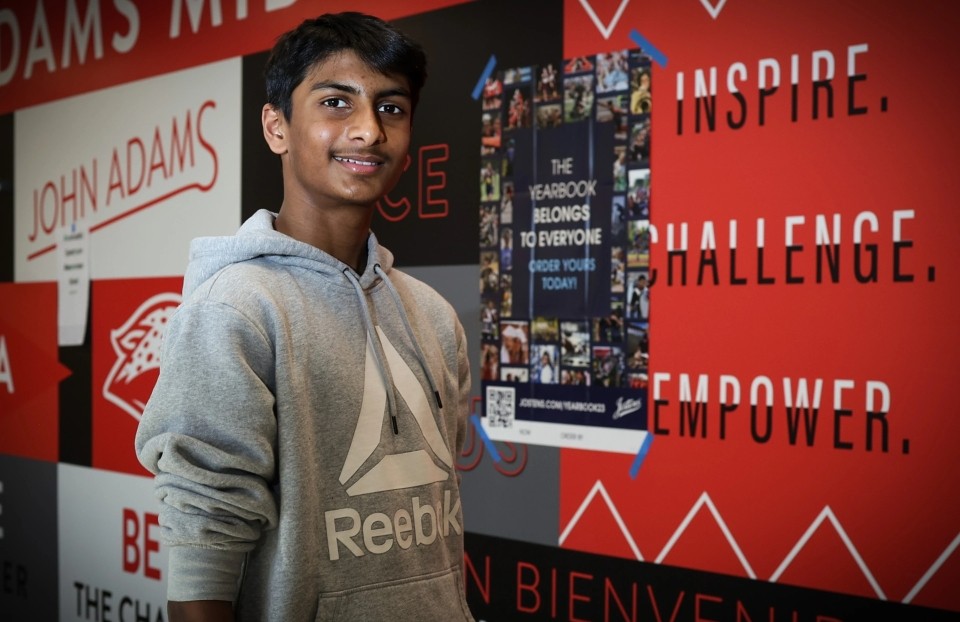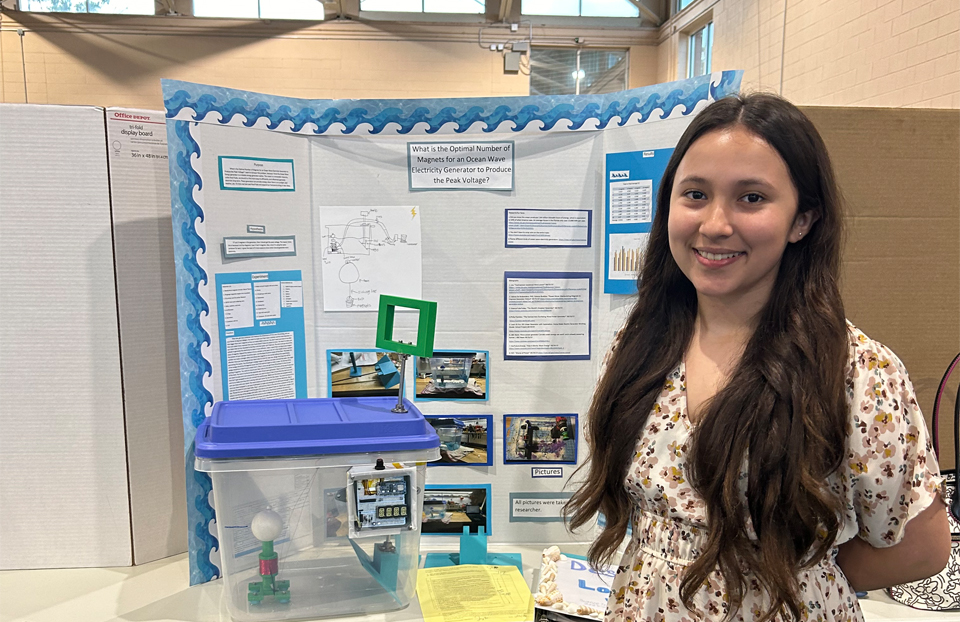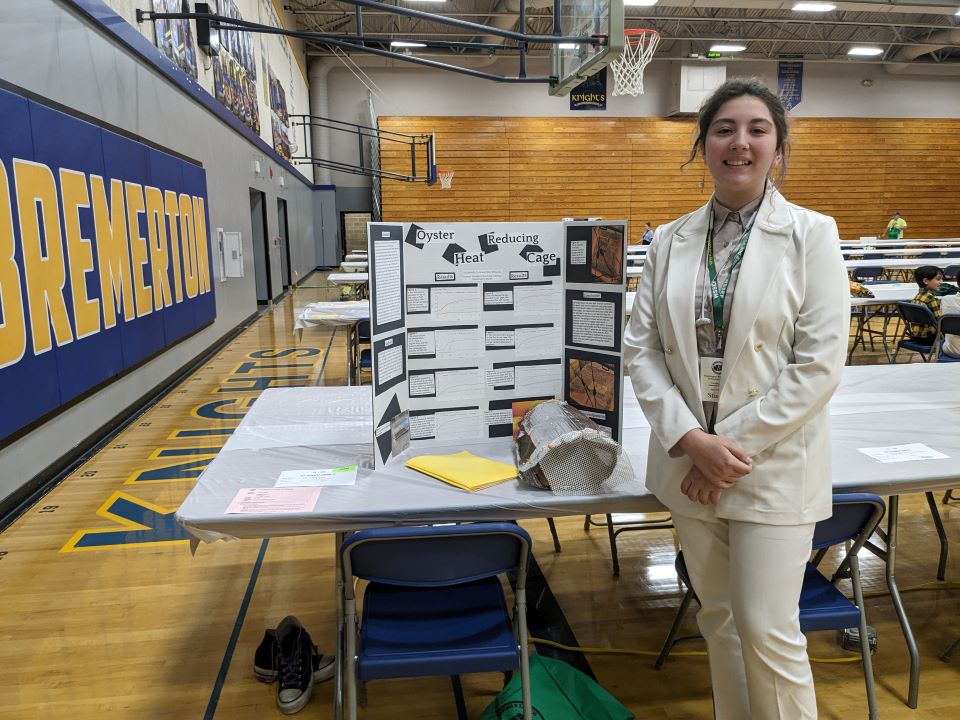Lemelson Foundation, Young & Amazing
One middle schooler’s invention to help the visually impaired
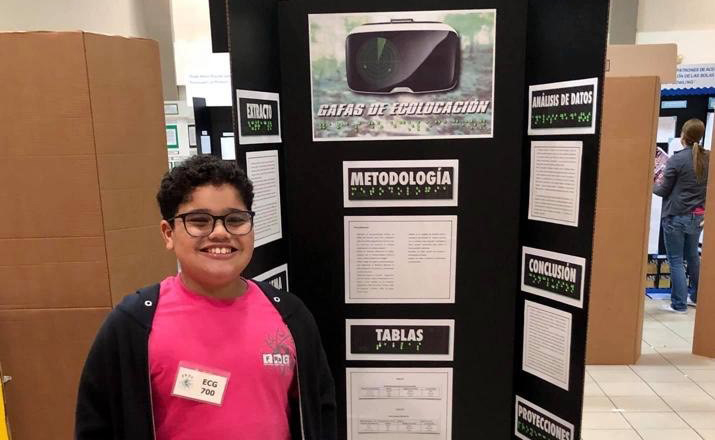
Annually for three years, The Lemelson Foundation will give $100 awards to an outstanding inventor in up to 270 Society Affiliate Fairs with middle school participants around the country. The prize was especially created to reward young inventors whose projects exemplify the ideals of inventive thinking by identifying a challenge in their community and creating a solution that will improve lives.
Meet Izal Guerra, an 8th grader from Toa Alta, Puerto Rico who recently won the Lemelson Early Inventor Prize at his local science fair. Motivated to help the 1.3 billion people across the globe who face unique challenges due to blindness and visual impairment, Izal invented a special pair of glasses. His project is named, “Gafas de Ecolocación,” which roughly translates to Echolocation Glasses, because the device uses a continuum of audible sounds to help those with mild to severe visual impairment better navigate their surroundings. Originally inspired by his love of video games, Izal wanted to create a solution that would allow the visually impaired to experience the fun too. However, his project evolved into something that would not only help them recreationally, but also assist with practical day-to-day tasks.
So, how does Izal’s invention work?
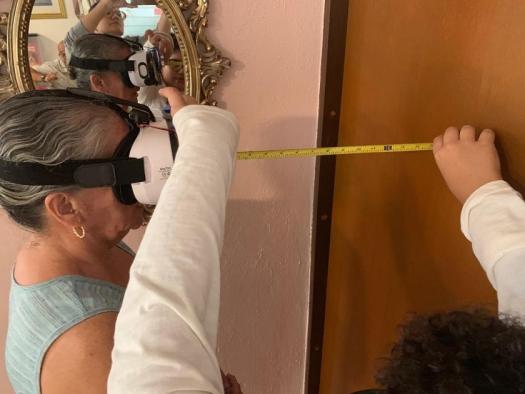
The Echolocation Glasses use audio cues and sounds to signal how close an object is. The closer the object is, the more acute the sound emitted from the device will be. Izal repurposed an old virtual reality headset and connected lights and speakers to sensors that measure distance. When a person wearing his device moves closer to something they might bump into, the lights will turn unique colors (something that’s helpful for those who are not fully visually impaired) and the speakers will play different sounds.
To find visually impaired subjects on which to test the special glasses, Izal, with the help of his parents, contacted a school for the blind in Puerto Rico. To test his prototype, a blind subject was asked to put on the glasses and walk around their home, without the assistance of a probing cane, through doorways and around walls. Izal found that, “As soon as the glasses changed the type of sound to a more acute one, the person would stop walking.” He would then measure the distance from the glasses to the object to see if it matched the programming. “All three sounds and light colors matched the programming during the tests.”
Izal’s invention could improve the world by helping the visually impaired to be more mobile and self-sufficient, eliminating the need for a probing cane. This would give more freedom of movement by leaving both hands free. Ideally, Izal wants his project to be both affordable and accessible to those who need it.
Prior to winning this award, Izal shared that he did not see himself as an inventor, but his perception of himself has since changed. He is satisfied with the fact that his invention has had noticeable results from its target demographic. In addition to improving lives, Izal’s invention has made him more confident in his abilities and more likely to enter a STEM career.
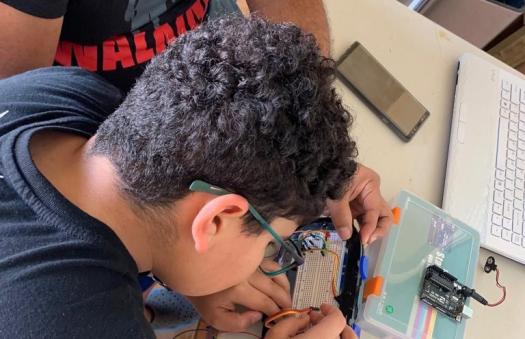
“My most fulfilling moment was seeing the Echolocation Glasses work while testing it with an actual blind person. It made me extremely happy and proud of myself.”
Although a set of glasses to assist the blind sounds like something out of Star Trek: The Next Generation, the utility of Izal’s invention is much closer to reality. He hopes that the challenges associated with vision loss can one day be a thing of the past. Hopefully, many more young inventors will follow Izal’s example and realize that they too can invent something that will positively impact people around the world.
